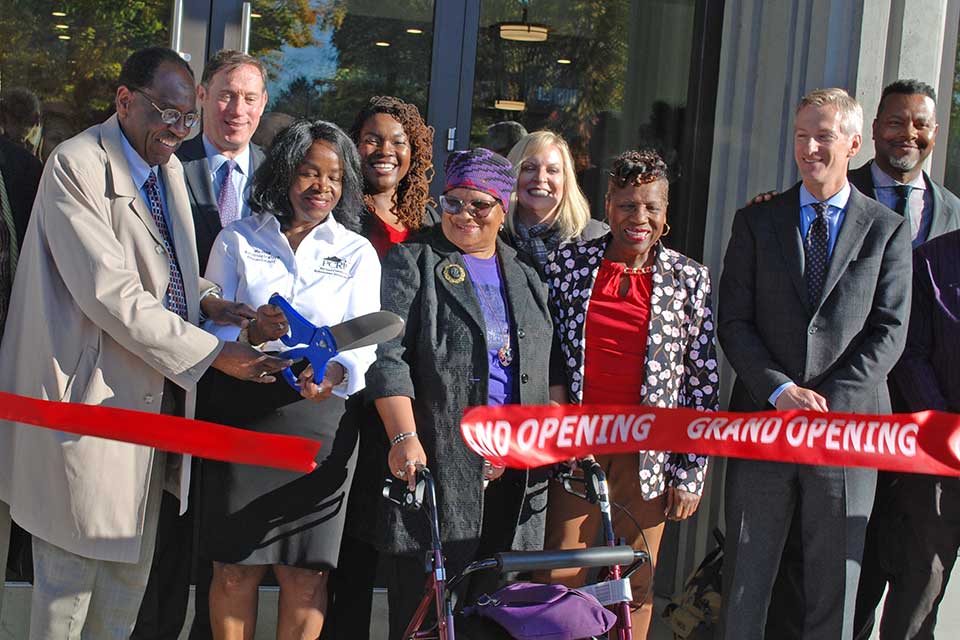Photo by Jerry Foster, The Skanner News Group
Pictured here, from left to right: Hermann Colas, founder of Colas Construction, Inc.; Portland City Commissioner Dan Saltzman; Maxine Fitzpatrick, executive director of PCRI; Nkenge Harmon-Johnson, CEO of Urban League of Portland; former Oregon legislator Avel Gordly; Stacy Dodson, U.S. Bank president for Portland and Southwest Washington; former Oregon legislator Margaret Carter; Mayor Ted Wheeler; Dr. Bishop Steven Holt, N/NE Affordable Housing Oversight Chair.
1. Economic Equity
The project focused on creating equitable economic opportunity. According to the building’s owner,
Portland Community Reinvestment Initiatives (PCRI), over 50% of the design-phase professional services and construction were contracted by companies that are Minority-Owned, Women-Owned and Emerging Small Businesses (MWESB). Both the contractor,
Colas Construction, and architecture firm,
Carleton Hart Architects, are minority-owned firms.
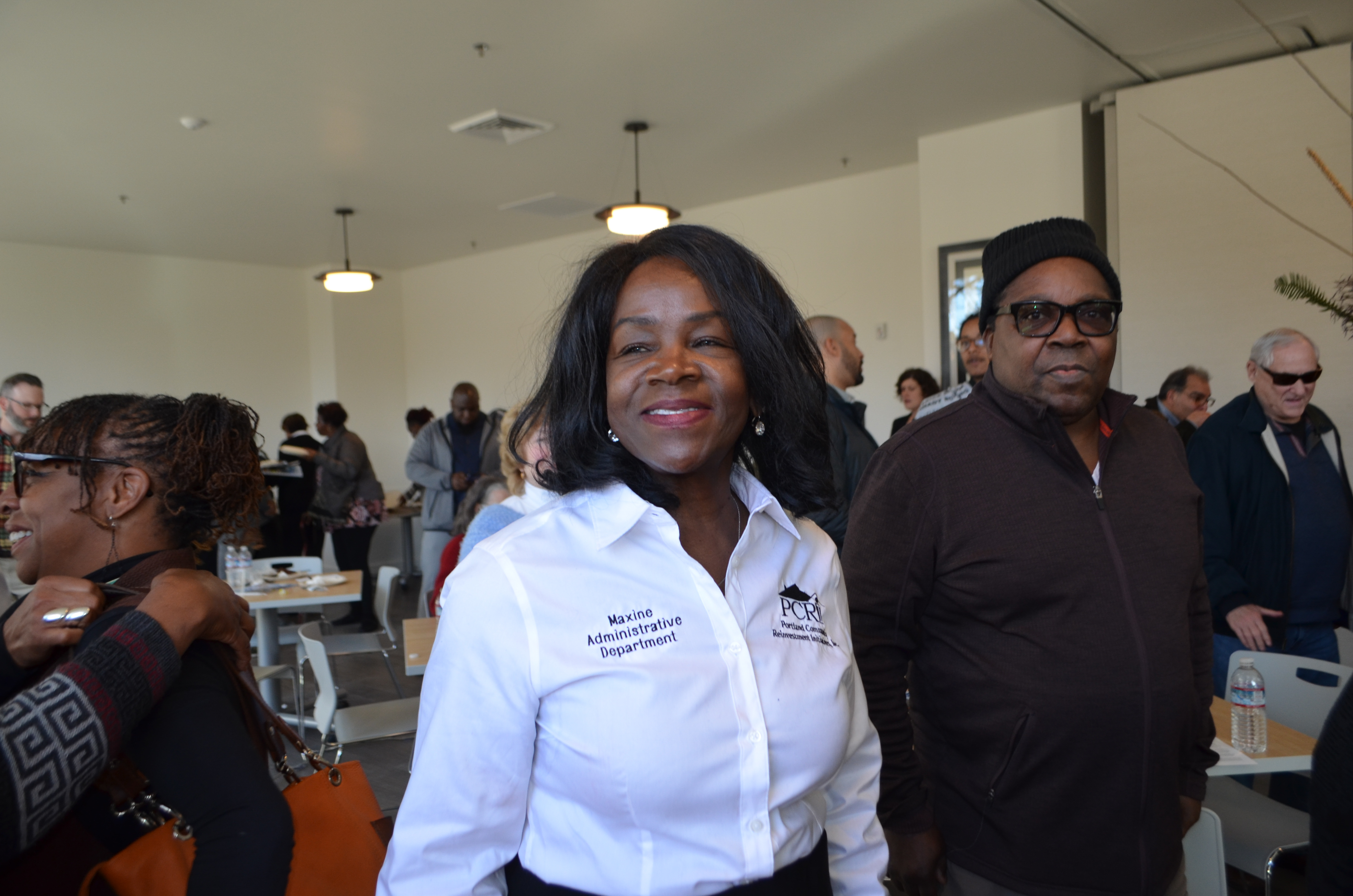
2. Site Safety
There were concerns about the site’s safety because of soil contamination from previous uses and structures. The PCRI-
Gerding Edlen Development team partnered with
GeoDesign, a third-party consultant, to make sure that the soil contamination was tested and cleaned thoroughly. The result is that the site is now safe and healthy for occupants, the community, and the environment. Check out
this article on PCRI’s website for more information on the site’s cleanup.​
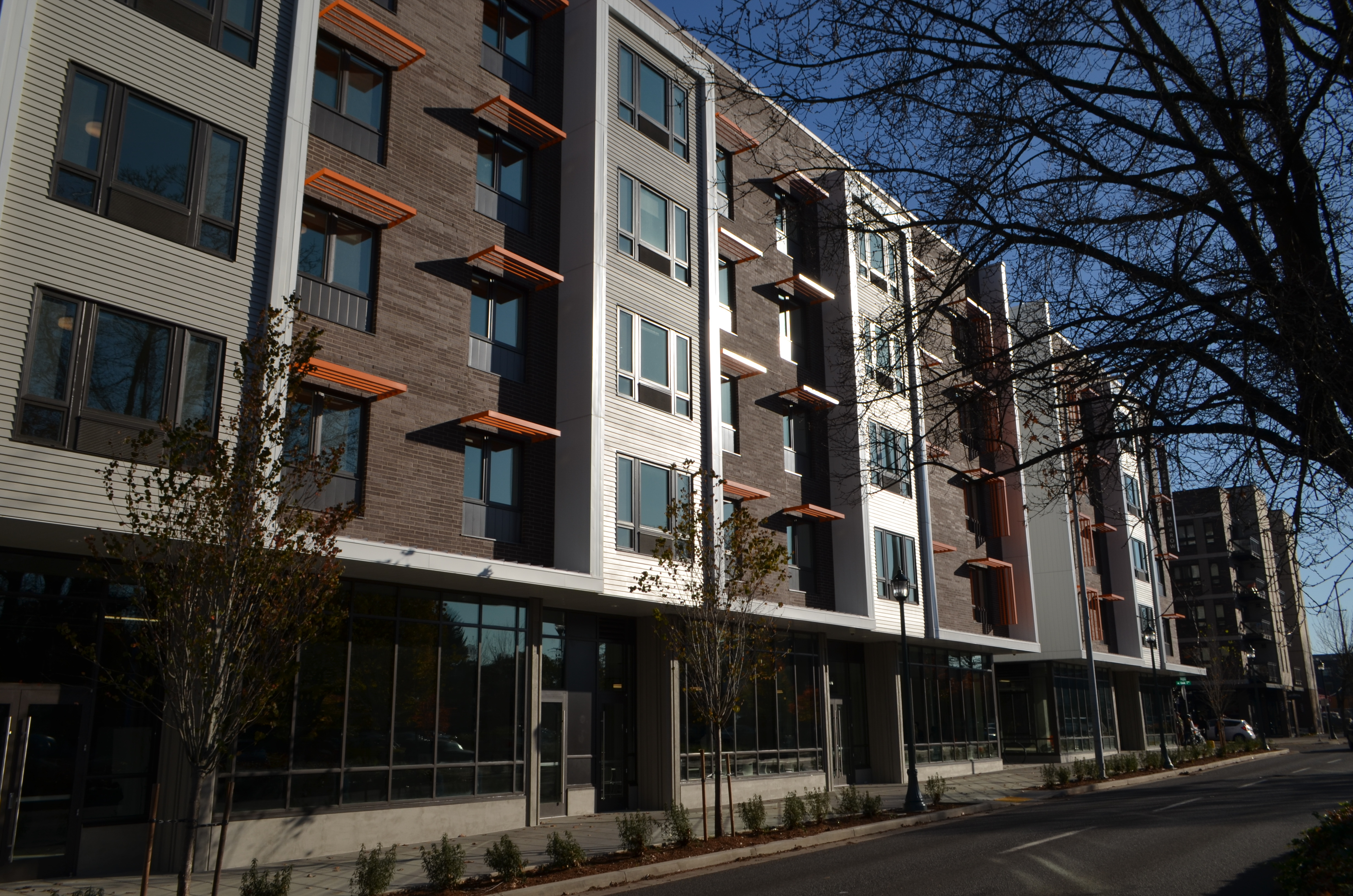
3. A Unique Housing Solution
It’s one of the first affordable housing projects of its kind in Portland, specifically designated for housing displaced communities of color. PCRI’s
Pathway 1000 Initiative is working toward 1,000 units in North and Northeast Portland neighborhoods where minorities have been displaced during gentrification. PCRI’s states, “the mixed-use commercial and residential building will provide 80 affordable rental homes prioritized for residents displaced from North and Northeast Portland and community-serving commercial retail space.”
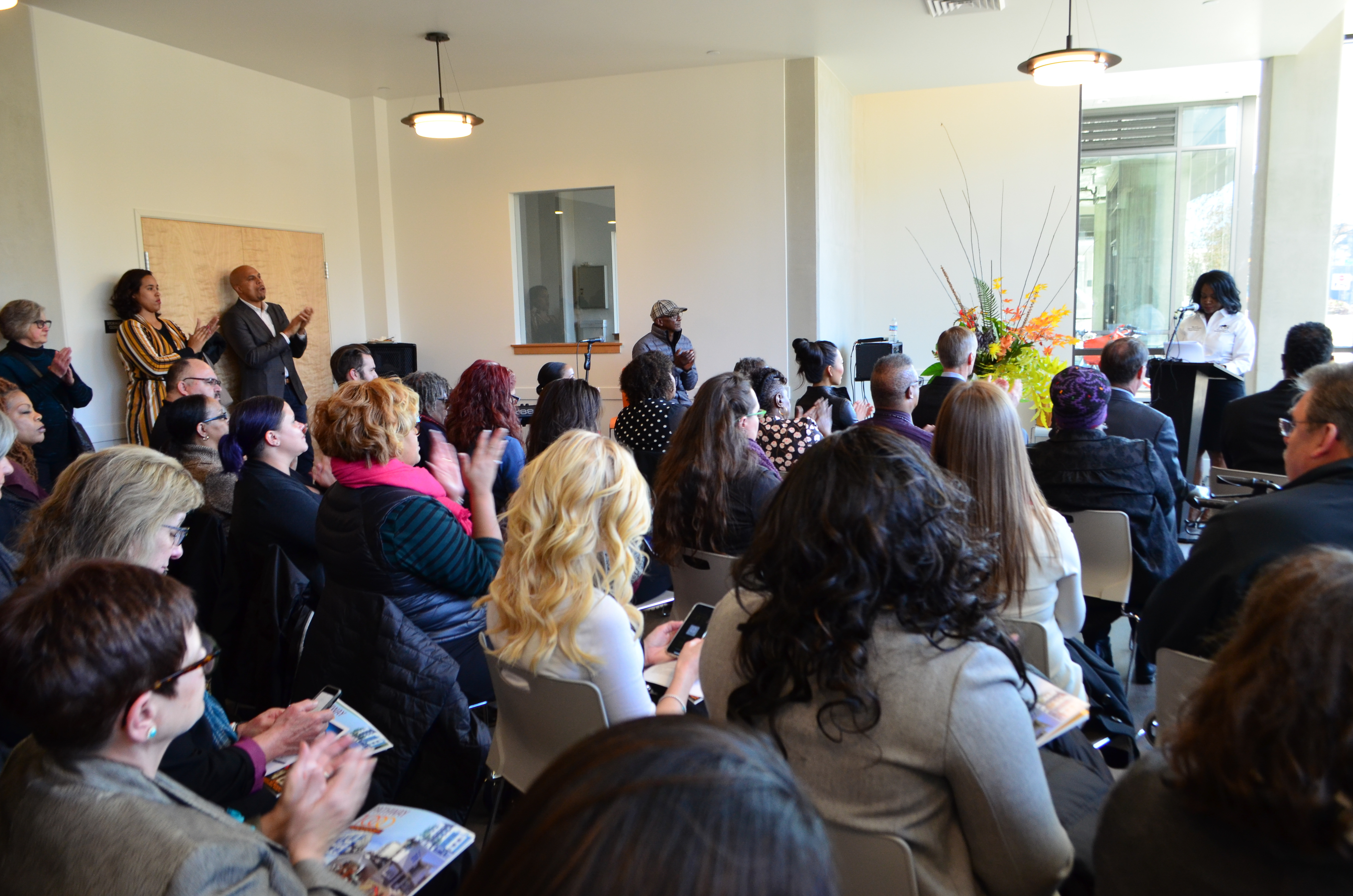
4. Sustainably Built
It’s sustainable. The building is pursuing a minimum of a Gold Level LEED
® Certification delivered by
Earth Advantage. The designers and developers have been planning for energy-efficient features from the beginning, in order to keep costs down for residents and make sure the building is durable, safe, and comfortable for the long term. The development prioritizes energy efficiency and lowers costs with a rooftop solar array, energy- and water-efficient appliances and systems, by using durable and healthy materials, and by incorporating efficiency into both the design and construction.
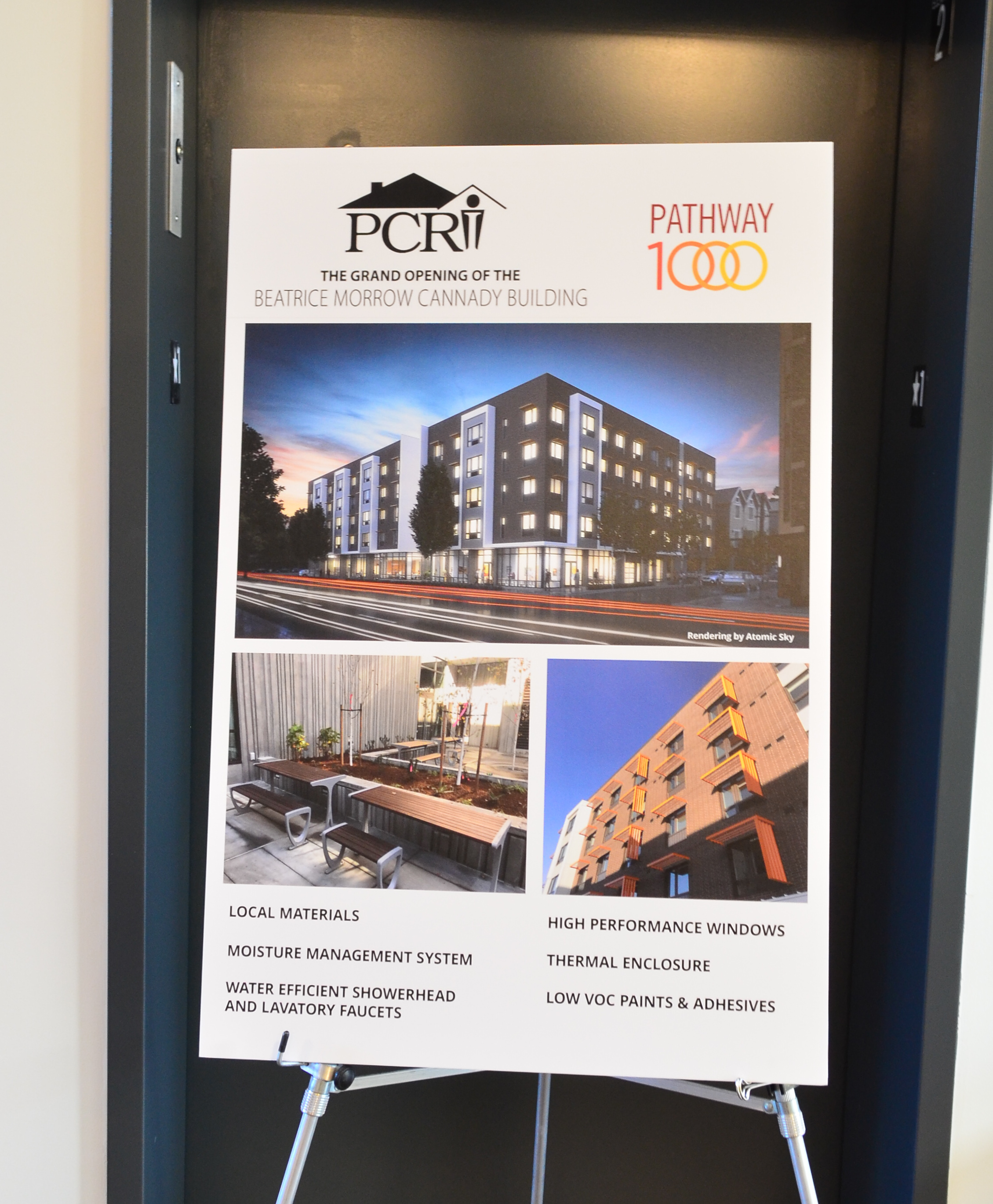
5. City Financed
It’s backed by the City. Mayor Ted Wheeler and the Portland City Council voted to approve city financing for the development, which marks another first, as PCRI quoted Mayor Wheeler in their press release, “This project...puts Portland in the unique position of being the first in the country to not only acknowledge that displacement as a result of gentrification, but it puts us in the unique position of seeking to reverse it.” Find out more about how the city gives priority for access to this affordable housing development to displaced minorities by implementing a preference policy
here.
